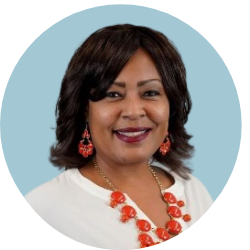
Provider's Perspective: Join Us in Helping to Care for Our Communities
Dear Philanthropy,
The time is now to commit your financial resources to the sustainability of the independent abortion clinics that serve 2 out of every 3 people who have an abortion in the United States.
As physicians of color who have founded and operate clinics providing abortion care, we know that abortion is health care provided at the intersections of human rights, racial, gender, economic, immigration, and disability justice. In the communities we serve, our neighbors overcome unimaginable barriers to access their fundamental human right to control their reproduction.
The reality of ensuring access to abortion care in the United States is nothing like providing any other type of healthcare. In states like Arizona and Texas, providers like us spend considerable capital responding to and advocating against targeted regulations of abortion providers, laws aimed at regulating us out of business by straining our resources.
Due to decades of extremist policies at the local, state, and national levels, we are forced to invest in regulatory compliance not seen anywhere else in community clinics. This includes understanding and complying with complex regulations; submitting endless and sometimes daily State reports; maintaining State mandated documentation; responding to unannounced inspections; paying frivolous fines; remodeling our clinics to respond to new laws; and hiring specialized staff to manage the burden. This is in addition to the added physical and digital security measures we must take to protect our clinics from hostile anti-abortion protestors and the emotional toll those protestors take on our workforce.
Half of people seeking abortion care live below the federal poverty line and restrictions on public and private coverage for abortion care mean that most people pay out-of-pocket for this time-sensitive care. Far too many people — particularly people of color and people with low incomes — already live in a world where access to abortion is nearly impossible. People denied a wanted abortion are 3 times more likely to be unemployed and 4 times more likely to be living below the federal poverty limit compared to people who obtain wanted abortions. Abortion care is therefore an important opportunity for philanthropic organizations to relieve multiple systems of oppression through fully funding the direct care of our communities and our work.
Authors

(she/her/hers)
Desert Star Family Planning

(she/her/hers)
Pegasus Health Justice Center
In an effort to maintain access to abortion services, providers keep the price of abortion care low relative to inflation and abortion care prices remain significantly lower than any other type of comparable healthcare. Providers are committed to the care of their communities by keeping prices low, even in the face of ever increasing expenses to maintain services in hostile environments. This duality is not sustainable – artificially low income in comparison to other healthcare, coupled with the numerous extra business expenses that abortion providers incur in hostile environments means abortion clinics need help now.
Philanthropic organizations can help to transform abortion care from healthcare delivered at the margins, to healthcare delivered at the cutting edge through direct, unrestricted funding of innovative abortion care start-ups – specifically BIPOC led organizations. Across the country, abortion care is provided on such narrow margins that clinics do not often have the capacity, bandwidth, or budgetary freedom to experiment with care delivery models. Abortion care start-ups offer an opportunity to perennially test new models of care, to experiment and possibly fail, without jeopardizing existing and well-established care channels. New abortion clinics are opportunities to test, iterate, and perfect new care models, and distribute the learning to existing clinics. Recent examples of care delivery innovations from new providers include Just the Pill, Hey Jane, and Abortion on Demand. While many of these organizations are fundamentally changing the way we think about abortion care, few if any of these organizations are led by people of color or centrally organized around a racial justice mission. People of color also deserve innovations in their healthcare and philanthropic foundations should invest in abortion providers of color to imagine new possibilities in abortion care with their communities and to deliver that care to them.
Philanthropic foundations can also help to sustain and expand healthcare by directly investing in the countless, established abortion providers across the country that fearlessly provide abortion care and more for their communities. In addition to abortion care, Desert Star Family Planning in Arizona provides gender affirming care, gynecology care, and sexual health care for all people. Independent abortion providers, especially providers of color, are uniquely positioned to hear what our communities need and nimble enough to respond. The compassionate, trauma-informed care we already provide translates to opportunities for providing safe spaces for gender affirming care and sexual health care. Unfortunately, the cost to provide abortion care continues to increase over time. Medications and supply costs often increase exponentially, with few vendors offering supplies and controlling prices to abortion providers. This “abortion tax” creates slim margins, as we continually work to recruit, retain, and sustain talented employees and keep services affordable. Philanthropic organizations can help established clinics by providing access to unrestricted funds to sustain our staffing through nebulous legal challenges and funds to help clinics scale to meet community needs.
For us, providing abortion care for our communities is our duty – ensuring our neighbors have equitable access to abortion care saves lives and secures futures. We invite you to join us on the front lines of health justice by expanding your philanthropic impact to include directly funding abortion care delivery and abortion providers of color.
Help us care for our communities,
DeShawn Taylor, MD, MSc, FACOG (she/her/hers), Desert Star Family Planning
Ghazaleh Moayedi, DO, MPH, FACOG (she/her/hers), Pegasus Health Justice Center